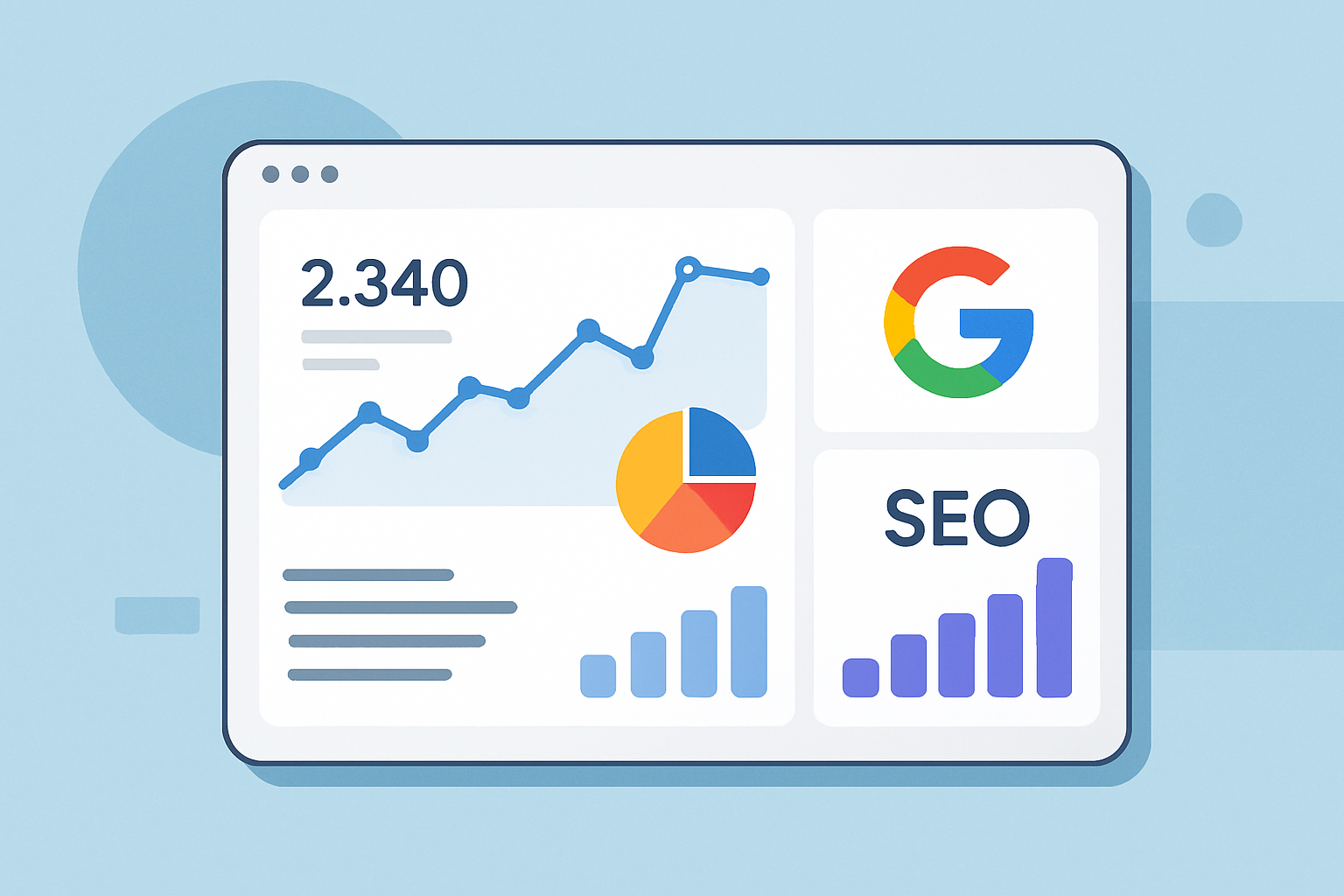
Common Seo Tools Mistakes And How To Avoid Them


SEO tools are the unsung heroes of today’s digital marketing world, offering nuggets of wisdom on everything from website performance and keyword rankings to backlink profiles and sizing up the competition. If you don’t use these tools properly, you might end up spinning your wheels and chasing wild goose chases that only slow down your SEO progress. This article shines a light on the common slip-ups that both seasoned pros and curious newbies often fall into when navigating SEO tools.
Relying Solely on One SEO Tool
Many users often put all their eggs in one SEO tool's basket when it comes to analysis, which can really limit their view and cause them to overlook key data. Since every tool collects and interprets information in its own quirky way, depending on just one usually means missing out on key insights and ending up making decisions based on information that’s incomplete or a bit skewed.
- No SEO tool has the full picture so putting all your eggs in one basket by relying on just one source can seriously narrow your view.
- Search volume and keyword difficulty often don’t line up perfectly between platforms which can throw you for a loop if you’re not paying close attention.
- Cross-checking data across different tools is a great way to catch trends and spot outliers helping you make smarter, more confident decisions.
- Pairing a backlink analysis tool with a keyword research platform tends to uncover a much richer set of opportunities than using either alone.
- Combining data from various tools means you have to do a bit of normalization but the payoff is usually deeper, more actionable insights that are totally worth the effort.
Overlooking Tool Configuration and Settings Is an Easy Pitfall We All Slip Into
SEO tools offer many customizable settings that users often overlook. If these are not set up right—like tracking the wrong subdomain or forgetting geographic targeting—it can mess with your reports, make you miss key keywords, or waste your crawl budget.
Double-check the website version and protocol to make sure your crawling and data collection are accurate.
Tweak geographic targeting thoughtfully because it is the secret to catching search trends and monitoring competitors in each specific region.
Review the robots.txt and noindex rules in your tool settings. Following them saves you from wasting time on pointless crawls.
Set your crawl limits carefully to balance thoroughness with resource use. This helps you avoid incomplete data issues.
Whenever possible, connect via API. This method lets you sync data in real time and get reports that truly tell the full story.
Common Mistakes People Often Make When Interpreting Data and Metrics
SEO tools throw a ton of metrics at you but misreading them can quickly send your strategies off the rails or leave you stuck in the mud. It’s important to understand what each metric measures and keep in mind its context and limitations
- Impressions tell you how often your content pops up on the screen, but they don’t always mean individuals actually clicked through. Clicks are what really matter for visits and engagement.
- Domain Authority gives you a rough idea of your ranking potential rather than being a definitive quality score.
- Different tools calculate keyword difficulty scores in their own ways, so it is best to take those numbers with a grain of salt instead of treating them as absolute truth.
- Traffic estimates are just that—estimates—and they can vary quite a bit compared to what your actual analytics show.
- It’s easy to get caught up in the ups and downs of short-term metrics. From my experience, focusing on steady trends over time is the better approach.
Missing Out on Regular Tool Updates and the Latest Features (You Know, the Good Stuff)
SEO tools constantly tweak algorithms and add fresh features to keep pace with the changing world of search engines and what users want. Yet many people don’t keep up with these updates and unknowingly miss out on smarter ways to boost data accuracy and make workflows run smoother.
- Updates usually roll in with smarter data collection methods that boost the accuracy of ranking and traffic estimates—kind of like giving your reports a fresh pair of glasses.
- Keeping a close eye on changelogs lets you spot how updates shake up your reports and analysis, so you’re never caught off guard.
- New features often swoop in to handle tricky tasks like competitor monitoring or spotting content gaps, saving you time and headaches.
- Setting up notifications is like having a friendly nudge in your ear, making sure you don’t miss important releases or changes.
- Jumping on new capabilities early can really put you ahead in the SEO game, giving you that subtle edge that makes all the difference.
Overlooking Cross-Referencing with Google Analytics and Search Console Is a Missed Opportunity
Relying solely on third-party SEO tools without cross-checking your data against Google's own platforms can leave some pretty noticeable gaps in how well you really understand your SEO performance. Google Analytics and Search Console provide direct insights straight from the horse's mouth.
Dive into Google Analytics data to link traffic sources and user behavior with keyword and ranking insights. It’s like connecting the dots to see the bigger picture.
Cross-check Search Console impressions and clicks with third-party keyword data to get a crystal-clear snapshot of your visibility out there.
Stack up keyword rankings against Google’s actual search queries to make sure you’re hitting the bullseye with your targeting.
Keep a keen eye on bounce rates and session lengths because they reveal how your content is really performing beyond just the rankings. Sometimes the story isn’t just in the numbers.
Catch data inconsistencies early on so you can nip tracking glitches or tool misconfigurations in the bud and save yourself headaches down the road.

SEO dashboard integrating third-party tool data with Google Analytics and Search Console insights for comprehensive analysis
Not Setting Clear SEO Goals When Using Tools
If you don’t start with clear goals for what you want to achieve using SEO tools, it’s easy to get buried under a mountain of data and chase the wrong metrics. Without direction, you waste precious time and resources.
- Kick things off by setting clear, measurable goals—think boosting organic traffic and giving your local search rankings a nice little nudge.
- Zero in on the key performance indicators that truly move the needle for your business because these are the ones that really count.
- Make sure your SEO tools and features line up with those goals so your analysis doesn’t wander off track.
- Set up benchmarks and timelines to keep an eye on progress. Staying organized here makes all the difference.
- Check back on your goals regularly and tweak them as needed to keep pace with any shifts in your business or the ever-changing search landscape.
Overlooking the True Value of Tool Training and Support
Many users often breeze past really mastering their SEO tools, which means they end up missing out on some pretty valuable features.
- Kick things off with the official tutorials and learning centers provided by the tool creators as this is the best way to build a solid foundation without getting lost.
- Jump into live webinars and Q&A sessions whenever you can because they’re great for staying in the loop and getting burning questions answered directly.
- Dive into user communities or forums to swap stories and share useful hacks plus discover some advanced tips you might not find elsewhere.
- Don’t be shy about experimenting with features in sandbox environments or demo accounts since it’s a risk-free playground.
- When things get tricky, reach out to customer service or consultants because they’re there to help untangle knottier problems that might pop up.
Practical Ways to Dodge Those All-Too-Common Slip-Ups with SEO Tools
Here’s a handy step-by-step guide to help you navigate SEO tools like a pro while avoiding those all-too-common stumbling blocks.
Run regular SEO analyses using various tools to gather thorough data and catch any sneaky inconsistencies that might pop up.
Tweak each tool’s settings with care to make sure they fit your site version, target regions and crawling needs like a glove.
Boost your third-party SEO tool data by blending it with insights from Google platforms such as seo tools from google and Analytics.
Set clear measurable SEO goals that genuinely align with your business objectives and focus on the KPIs that really count.
Carve out time for continuous learning by diving into tutorials, webinars and user forums to squeeze every drop of value from your tools and stay ahead of updates.
| Mistake | Why it matters | How to avoid | Tools/features to help |
|---|---|---|---|
| Relying on a single SEO tool | Puts a cap on how broad and reliable your data can be | Mix and match different tools, then double-check the results | Data export/import, API linking |
| Ignoring tool configuration | Risks churning out misleading reports and burning time | Tweak your settings, honor robots.txt, and set sensible crawl limits | Setup wizards, configuration guides |
| Misinterpreting metrics | Can send you down the wrong SEO path | Get a solid handle on what each metric actually means and trust trends over raw numbers | Metric documentation, tooltips |
| Overlooking updates and features | Means you miss out on sharper accuracy and handy automations | Stay in the loop with changelogs, flip on notifications, and keep workflows fresh | Update alerts, release notes |
| Neglecting Google Analytics/Console | You’re cutting yourself off from key, trusted search insights | Link up and routinely cross-check these data streams | Data connectors, dashboards |
| Not setting clear SEO goals | Leads to scattered focus and spinning your wheels | Nail down clear objectives and KPIs that actually align with your business ambitions | Goal trackers, custom reports |
| Skipping tool training | Holds you back from squeezing the most out of your tools | Dive into tutorials, engage with user communities, and hop on webinars | Learning centers, community forums |





